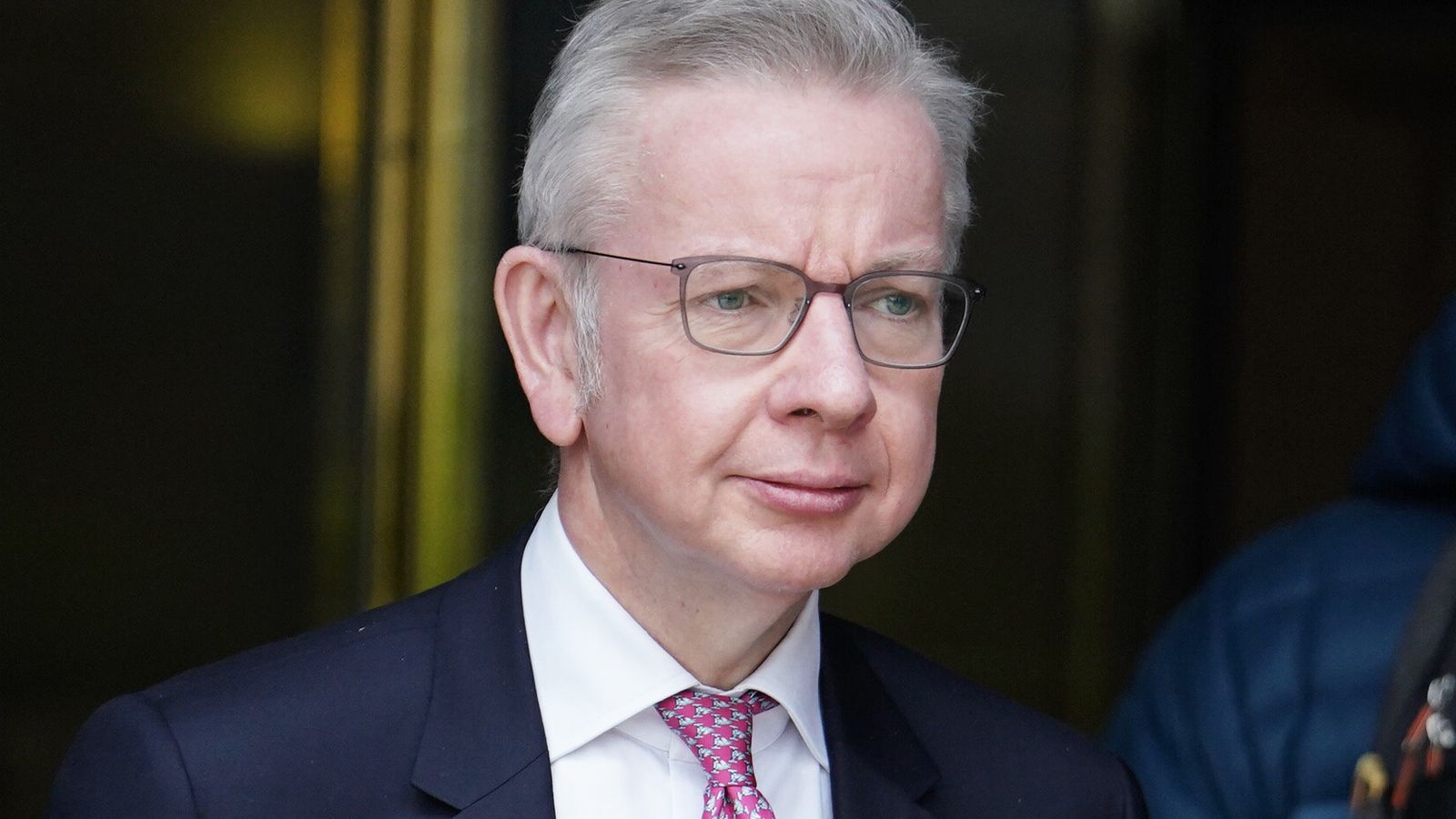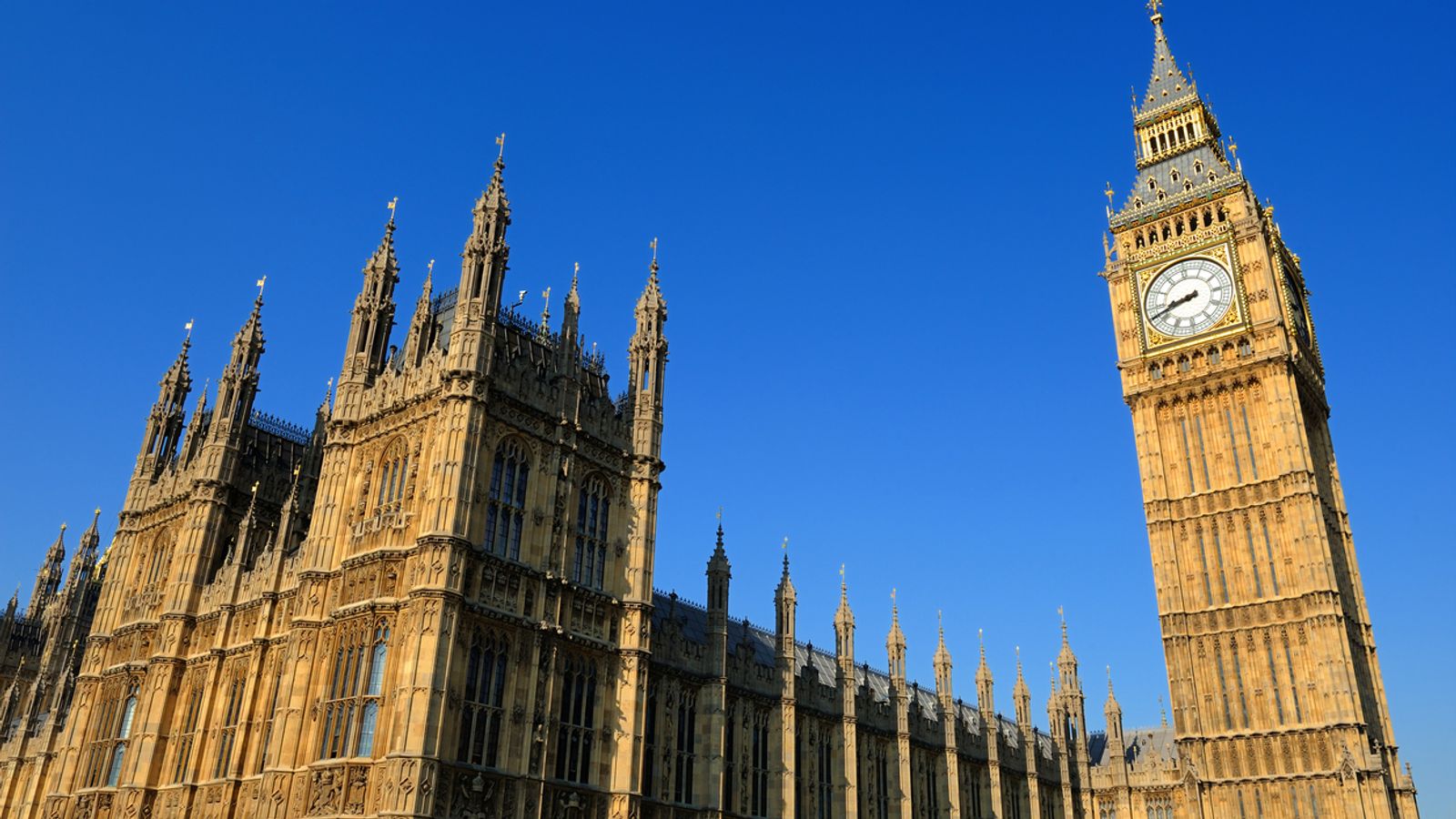Communities Secretary Michael Gove has named five groups that will be re-assessed as a result of the government’s new definition of extremism.
Speaking in the Commons, Mr Gove said two far-right organisations – the British National Socialist Movement and the Patriotic Alternative – and three Islamist organisations – the Muslim Association of Britain, Cage and Mend – were groups “we should be concerned” about.
Follow live: Reaction as Gove gives extremism statement to MPs
Speaking after the government announced the new definition of extremism this morning, the minister said it was “critically important we do not unwittingly or through ignorance fund or support organisations who are themselves extremist” as it had been the case in the past that “extremist groups and actors have sought to present themselves as moderate voices representative of majority or mainstream opinion”.
Mr Gove also sought to reassure critics the plan was “in no way intending to restrict freedom of expression, religion or belief”, saying gender critical campaigners, trans activists, those with conservative religious views and environmental protest groups would not be included.
But, he added: “The government cannot be in a position where, unwittingly or not, we sponsor, subsidise or support in any way organisations or individuals opposed to the freedoms we hold dear.”
Labour’s deputy leader, Angela Rayner, agreed that “hateful extremism threatens the safety of our communities and the unity of our country,” and was “a serious problem which demands a serious response”.
Michael Gove ‘exercises Christian forgiveness’ over Tory donor’s alleged remarks about Diane Abbott
New extremism definition unveiled because ‘democracy at risk from far-right and Islamist extremists’
What are the rules around political donations, do they change for an election and can parties give back money?
But she criticised how long it had taken the government to act since their last definition was introduce in 2011, and said it was “deeply concerning” that extremists had already “benefited from government engagement, endorsement and support”.
Please use Chrome browser for a more accessible video player
The new definition described extremism as “the promotion or advancement of an ideology based on violence, hatred or intolerance” that aims to “negate or destroy the fundamental rights and freedoms of others” or “undermine, overturn or replace the UK’s system of liberal parliamentary democracy and democratic rights”.
It also includes those who “intentionally create a permissive environment for others to achieve” either of those aims.
The update came as part of a ministerial drive to clamp down on the Islamist and far-right extremism that has intensified in the wake of the Israel-Hamas war.
But some critics have raised concerns that it could have a “chilling effect” on free speech, while others say it doesn’t go far enough and there needs to be a change in the law to tackle extremism.
Please use Chrome browser for a more accessible video player
Mr Gove pointed to five specific groups that would come in for further scrutiny now the new definition is in place.
After warning the “activities of the extreme right wing are a growing worry”, the minister said: “Across this House, I am sure that we would agree that organisations such as the British National Socialist Movement and Patriotic Alternative, who promote neo-Nazi ideology, argue for forced repatriation, a white ethno state and the targeting of minority groups by intimidation, are precisely the type of groups about which we should be concerned and whose activities we will assess against the new definition.”
And after saying the religion of Islam should not be confused with the “totalitarian ideology” of Islamists, he added: “Organisations such as the Muslim Association of Britain, which is the British affiliate of the Muslim Brotherhood, and other groups such as Cage and Mend, give rise to concern for the Islamist orientation and views.
“We will be holding these and other organisations to account, to assess if they meet our definition of extremism and will take action as appropriate.”
Mr Gove confirmed there would be a new “centre of excellence” on counterterrorism created within the Home Office, promising it would become a “world leading authority” on the issue.
Be the first to get Breaking News
Install the Sky News app for free
The minister added: “The liberties that we hold dear and indeed the democratic principles we are all sent here to uphold, requires us to counter and challenge the extremists who seek to intimidate, coerce and to divide.
“We have to be clear-eyed about the threat we face, precise about where that threat comes from and rigorous in defending our democracy.
“That means upholding freedom of expression, religion and belief when we are threatened, facing down harassment and hate, supporting the communities facing the greatest challenge from extremist activity and ensuring this House and this country are safe, free and united.”
But Labour wants ministers to also update its full counter-extremism strategy and its action plan on hate crime.
Ms Rayner told MPs: “We need much stronger action to tackle the corrosive forms of hatred that devastate lives and corrode communities.
“But today’s statement does not go far enough. And regardless of how workable and effective this new definition and centre of excellence is, this announcement will not be enough.”









